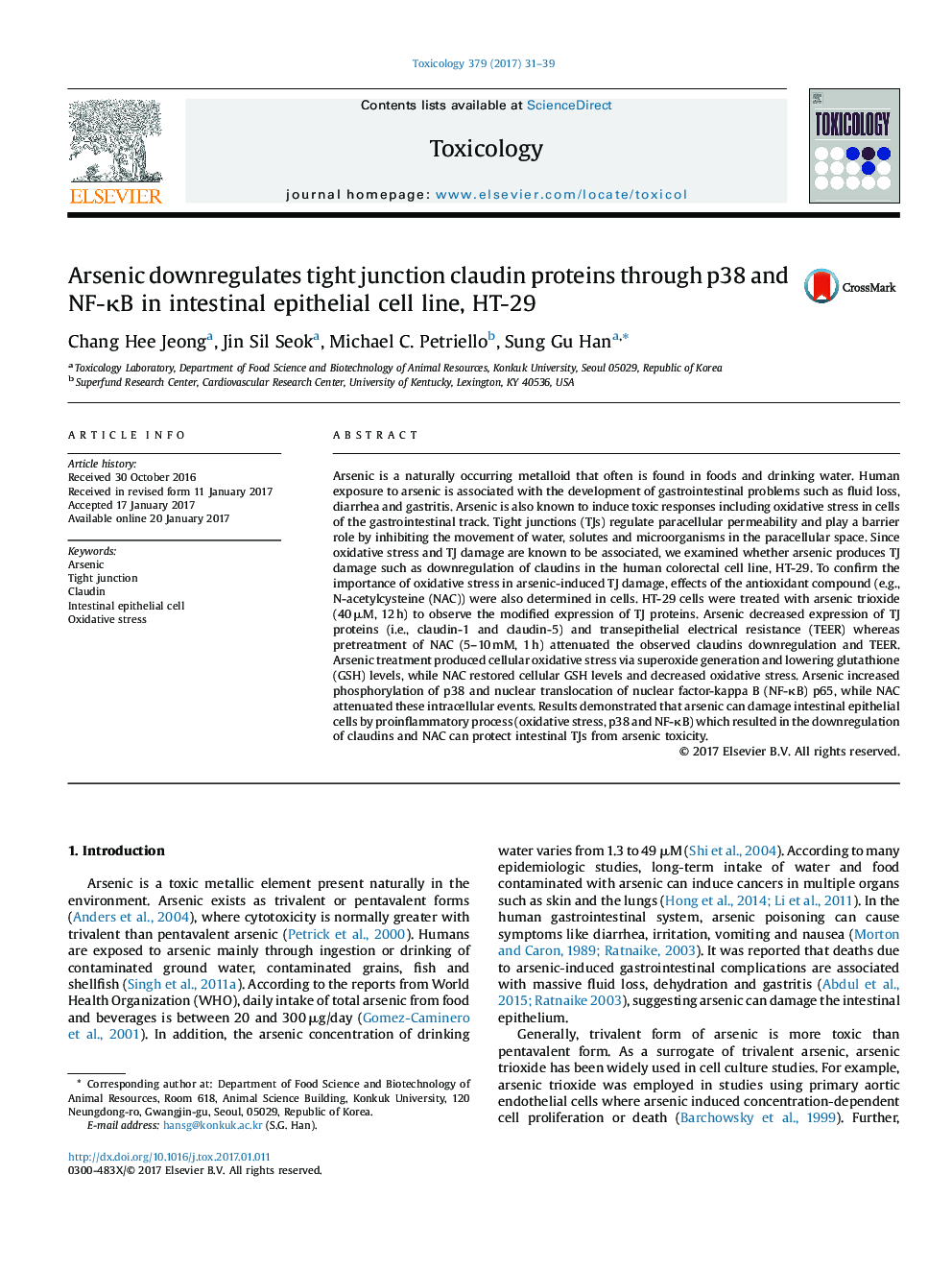| کد مقاله | کد نشریه | سال انتشار | مقاله انگلیسی | نسخه تمام متن |
|---|---|---|---|---|
| 5561852 | 1562293 | 2017 | 9 صفحه PDF | دانلود رایگان |

Arsenic is a naturally occurring metalloid that often is found in foods and drinking water. Human exposure to arsenic is associated with the development of gastrointestinal problems such as fluid loss, diarrhea and gastritis. Arsenic is also known to induce toxic responses including oxidative stress in cells of the gastrointestinal track. Tight junctions (TJs) regulate paracellular permeability and play a barrier role by inhibiting the movement of water, solutes and microorganisms in the paracellular space. Since oxidative stress and TJ damage are known to be associated, we examined whether arsenic produces TJ damage such as downregulation of claudins in the human colorectal cell line, HT-29. To confirm the importance of oxidative stress in arsenic-induced TJ damage, effects of the antioxidant compound (e.g., N-acetylcysteine (NAC)) were also determined in cells. HT-29 cells were treated with arsenic trioxide (40 μM, 12 h) to observe the modified expression of TJ proteins. Arsenic decreased expression of TJ proteins (i.e., claudin-1 and claudin-5) and transepithelial electrical resistance (TEER) whereas pretreatment of NAC (5-10 mM, 1 h) attenuated the observed claudins downregulation and TEER. Arsenic treatment produced cellular oxidative stress via superoxide generation and lowering glutathione (GSH) levels, while NAC restored cellular GSH levels and decreased oxidative stress. Arsenic increased phosphorylation of p38 and nuclear translocation of nuclear factor-kappa B (NF-κB) p65, while NAC attenuated these intracellular events. Results demonstrated that arsenic can damage intestinal epithelial cells by proinflammatory process (oxidative stress, p38 and NF-κB) which resulted in the downregulation of claudins and NAC can protect intestinal TJs from arsenic toxicity.
Journal: Toxicology - Volume 379, 15 March 2017, Pages 31-39